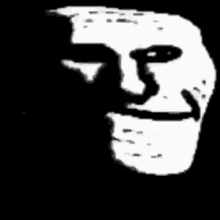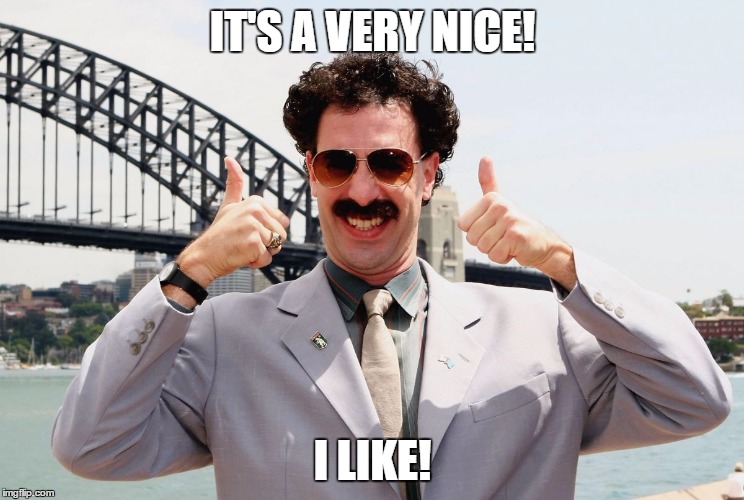Chapter One: The End of an Era (November '82)
Since the end of World War II in 1945 and victory over the Axis powers, two new superpowers USSR and USA are locked in open yet restricted geopolitical rivalry which involves both countries and their respective allies, the Western Bloc and the Eastern Bloc. Aside from the nuclear arsenal development and conventional military deployment, the struggle for dominance was expressed via indirect means such as psychological warfare, propaganda campaigns, espionage, far-reaching embargoes, rivalry at sports events, and technological competitions such as the Space Race.

The first phase of the Cold War began shortly after the end of World War II in 1945. The United States and its Western European allies sought to strengthen their bonds and used the policy of containment against Soviet influence; they accomplished this most notably through the formation of NATO, which was essentially a defensive agreement in 1949. The Soviet Union countered with the Warsaw Pact in 1955, which had similar results with the Eastern Bloc. Following the Cuban Missile Crisis, a new phase began that saw the Sino-Soviet split between China and the Soviet Union complicate relations within the communist sphere, leading to a series of border confrontations, while France, a Western Bloc state, began to demand greater autonomy of action. The USSR invaded Czechoslovakia to suppress the 1968 Prague Spring, while the US experienced internal turmoil from the civil rights movement and opposition to the Vietnam War. By the 1970s, both sides had started making allowances for peace and security, ushering in a period of détente that saw the Strategic Arms Limitation Talks and the US opening relations with the People's Republic of China as a strategic counterweight to the USSR. Détente collapsed at the end of the decade with the beginning of the Soviet–Afghan War in 1979.

For the last 18 years, USSR have been ruled by General Secretary Leonid Brezhnev, whose tenure from 1964 to 1982 was second only to Joseph Stalin's in duration. While his rule as general secretary was characterized by political stability and significant foreign policy successes, it was also marked by corruption, inefficiency, economic stagnation, and rapidly growing technological gaps with the West. On 10 November 1982, Leonid Ilyich Brezhnev, the third General Secretary of the Communist Party of the Soviet Union (CPSU) and the fifth leader of the Soviet Union, died at the age of 75, a month before his 76th birthday, after suffering a heart attack following years of serious ailments. His death was officially acknowledged on 11 November simultaneously by Soviet radio and television.


With the death of Brezhnev, the Politburo must find an answer to the most important solution – who is going to take charge of the Soviet state and the CPSU and navigate the country through the turbulent 1980s to the bright and prosperous future. The list of potential candidates includes: Yuri Andropov, an all-powerful Chairman of Committee for State Security (KGB), infamous for his role in suppression of the Hungarian Uprising and the Prague Spring. Second most likely candidate is Konstantin Chernenko, who during Brezhnev's final years, Chernenko became fully immersed in ideological Party work: heading Soviet delegations abroad, accompanying Brezhnev to important meetings and conferences, and working as a member of the commission that revised the Soviet Constitution in 1977. In 1979, he took part in the Vienna arms limitation talks. Then there is also Nikolai Aleksandrovich Tikhonov, serving as Chairman of the Council of Ministers (Premier) from 1980, being responsible for the cultural and economic administration of the Soviet Union.
Andrei Gromyko, who serves as Minister of Foreign Affairs from year 1957(!). As Foreign Minister of the Soviet Union, Gromyko was directly involved in deliberations with the Americans during the Cuban Missile Crisis and helped broker a peace treaty ending the 1965 Indo-Pakistani War. Under the leadership of Leonid Brezhnev, he played a central role in the establishment of détente with the United States by negotiating the ABM Treaty, the Partial Nuclear Test Ban Treaty and the SALT I & II among others. Next is Viktor Grishin, who rose to become leader of the Communist party in the city of Moscow from 1967. Grishin is renowned for his hardline stance and implacable character. Some party members have suggested other candidates for the position of General Secretary, all in the name of renewal of the Soviet Union and the Communist Party. The list of those rather unlikely successors includes: Grigory Romanov, First Secretary of the Leningrad Regional Party Committee since 1970, in this position he gained a reputation of being a good organizer and well versed in economic matters, winning defense investment for Leningrad. Another candidate is
Volodymyr Shcherbytsky, First Secretary of the Communist Party of Ukraine, unfailingly loyal to Brezhnev. His rule of the Ukrainian Soviet Socialist Republic was characterized by the expanded policies of re-centralisation and suppression of dissent, accompanied by a broad assault on Ukrainian culture and intensification of Russification. There is also a candidate supported by non-slavic members of the CPSU - Dinmukhamed Kunaev, First Secretary of the Communist Party of Kazakhstan. During Kunaev's long rule, Kazakhs occupied prominent positions in the bureaucracy, economy and educational institutions. His supporters believe in increasing the role of all non-russian and non-slavic nations of USSR in everyday governance and decision-making. The last and the youngest candidate on the list is Mikhail Gorbachev, who in 1978 was appointed a Secretary of the Central Committee and to the Central Committee's Secretariat for Agriculture. Although he is committed to preserving and strengthening of the Soviet state and its Marxist–Leninist ideals, Gorbachev believes significant reform are necessary in order to fix all the problems plaguing the USSR.
Current world map (November 1982) - all credit goes to @CountofDooku

The first phase of the Cold War began shortly after the end of World War II in 1945. The United States and its Western European allies sought to strengthen their bonds and used the policy of containment against Soviet influence; they accomplished this most notably through the formation of NATO, which was essentially a defensive agreement in 1949. The Soviet Union countered with the Warsaw Pact in 1955, which had similar results with the Eastern Bloc. Following the Cuban Missile Crisis, a new phase began that saw the Sino-Soviet split between China and the Soviet Union complicate relations within the communist sphere, leading to a series of border confrontations, while France, a Western Bloc state, began to demand greater autonomy of action. The USSR invaded Czechoslovakia to suppress the 1968 Prague Spring, while the US experienced internal turmoil from the civil rights movement and opposition to the Vietnam War. By the 1970s, both sides had started making allowances for peace and security, ushering in a period of détente that saw the Strategic Arms Limitation Talks and the US opening relations with the People's Republic of China as a strategic counterweight to the USSR. Détente collapsed at the end of the decade with the beginning of the Soviet–Afghan War in 1979.
For the last 18 years, USSR have been ruled by General Secretary Leonid Brezhnev, whose tenure from 1964 to 1982 was second only to Joseph Stalin's in duration. While his rule as general secretary was characterized by political stability and significant foreign policy successes, it was also marked by corruption, inefficiency, economic stagnation, and rapidly growing technological gaps with the West. On 10 November 1982, Leonid Ilyich Brezhnev, the third General Secretary of the Communist Party of the Soviet Union (CPSU) and the fifth leader of the Soviet Union, died at the age of 75, a month before his 76th birthday, after suffering a heart attack following years of serious ailments. His death was officially acknowledged on 11 November simultaneously by Soviet radio and television.
With the death of Brezhnev, the Politburo must find an answer to the most important solution – who is going to take charge of the Soviet state and the CPSU and navigate the country through the turbulent 1980s to the bright and prosperous future. The list of potential candidates includes: Yuri Andropov, an all-powerful Chairman of Committee for State Security (KGB), infamous for his role in suppression of the Hungarian Uprising and the Prague Spring. Second most likely candidate is Konstantin Chernenko, who during Brezhnev's final years, Chernenko became fully immersed in ideological Party work: heading Soviet delegations abroad, accompanying Brezhnev to important meetings and conferences, and working as a member of the commission that revised the Soviet Constitution in 1977. In 1979, he took part in the Vienna arms limitation talks. Then there is also Nikolai Aleksandrovich Tikhonov, serving as Chairman of the Council of Ministers (Premier) from 1980, being responsible for the cultural and economic administration of the Soviet Union.
Andrei Gromyko, who serves as Minister of Foreign Affairs from year 1957(!). As Foreign Minister of the Soviet Union, Gromyko was directly involved in deliberations with the Americans during the Cuban Missile Crisis and helped broker a peace treaty ending the 1965 Indo-Pakistani War. Under the leadership of Leonid Brezhnev, he played a central role in the establishment of détente with the United States by negotiating the ABM Treaty, the Partial Nuclear Test Ban Treaty and the SALT I & II among others. Next is Viktor Grishin, who rose to become leader of the Communist party in the city of Moscow from 1967. Grishin is renowned for his hardline stance and implacable character. Some party members have suggested other candidates for the position of General Secretary, all in the name of renewal of the Soviet Union and the Communist Party. The list of those rather unlikely successors includes: Grigory Romanov, First Secretary of the Leningrad Regional Party Committee since 1970, in this position he gained a reputation of being a good organizer and well versed in economic matters, winning defense investment for Leningrad. Another candidate is
Volodymyr Shcherbytsky, First Secretary of the Communist Party of Ukraine, unfailingly loyal to Brezhnev. His rule of the Ukrainian Soviet Socialist Republic was characterized by the expanded policies of re-centralisation and suppression of dissent, accompanied by a broad assault on Ukrainian culture and intensification of Russification. There is also a candidate supported by non-slavic members of the CPSU - Dinmukhamed Kunaev, First Secretary of the Communist Party of Kazakhstan. During Kunaev's long rule, Kazakhs occupied prominent positions in the bureaucracy, economy and educational institutions. His supporters believe in increasing the role of all non-russian and non-slavic nations of USSR in everyday governance and decision-making. The last and the youngest candidate on the list is Mikhail Gorbachev, who in 1978 was appointed a Secretary of the Central Committee and to the Central Committee's Secretariat for Agriculture. Although he is committed to preserving and strengthening of the Soviet state and its Marxist–Leninist ideals, Gorbachev believes significant reform are necessary in order to fix all the problems plaguing the USSR.
Current world map (November 1982) - all credit goes to @CountofDooku
Last edited:

